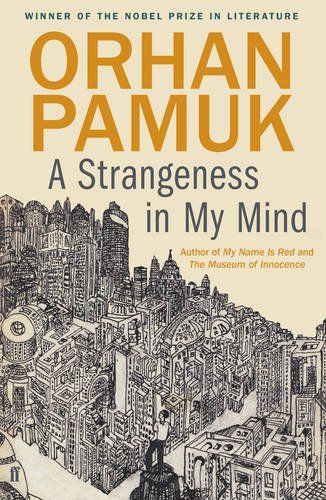
A Strangeness in My Mind
A Strangeness In My Mind is a novel Orhan Pamuk has worked on for six years. It is the story of boza seller Mevlut, the woman to whom he wrote three years' worth of love letters, and their life in Istanbul. In the four decades between 1969 and 2012, Mevlut works a number of different jobs on the streets of Istanbul, from selling yoghurt and cooked rice, to guarding a car park. He observes many different kinds of people thronging the streets, he watches most of the city get demolished and re-built, and he sees migrants from Anatolia making a fortune; at the same time, he witnesses all of the transformative moments, political clashes, and military coups that shape the country. He always wonders what it is that separates him from everyone else - the source of that strangeness in his mind. But he never stops selling boza during winter evenings and trying to understand who his beloved really is. What matters more in love: what we wish for, or what our fate has in store? Do our choices dictate whether we will be happy or not, or are these things determined by forces beyond our control? A Strangeness In My Mind tries to answer these questions while portraying the tensions between urban life and family life, and the fury and helplessness of women inside their homes.
Reviews
Rodrigo Figueiredo Severino@rodrigueseve
Arturo Hernández@artthh
Hellboy TCR@hellboytcr009
Deniz Erkaradağ@denizerkaradag
Joao Freitas@joaofreitas
Princess Doe @princessdoe
maryam@meowyam
Hafsa@hafinator
azer@azer
cenk karagören@cenkk
Trevor Berrett@mookse
inês@semplis
Highlights
Aske Dørge@aske
Page 367
Aske Dørge@aske
Page 344
Aske Dørge@aske
Page 307
Aske Dørge@aske
Page 304
Aske Dørge@aske
Page 297
Aske Dørge@aske
Page 288
Aske Dørge@aske
Page 171
Aske Dørge@aske
Page 153
Aske Dørge@aske
Page 153
Aske Dørge@aske
Page 134
Aske Dørge@aske
Page 21